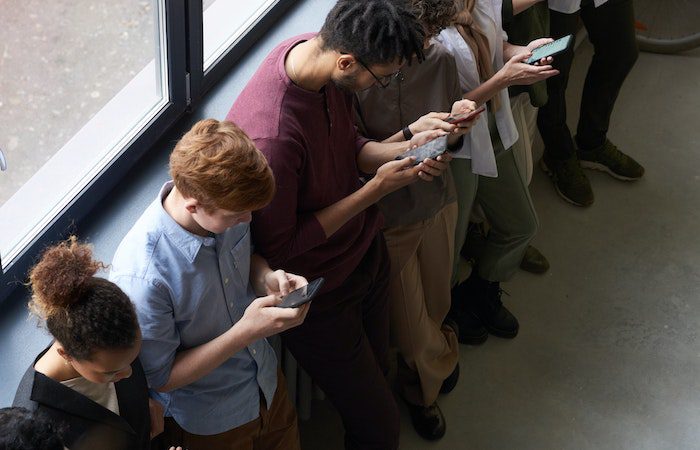What sort of social media user are you?
Maybe you are a lurker, scrolling through posts but never interacting with anyone. No “liking,” no retweeting, no commenting.
Or maybe you are an active poster yourself, sharing your opinions, photos, clever jokes, or original memes. You might spend a fair amount of time checking your various feeds to see how many and what kind of reactions your posts are getting.
You could also be the sort of person who really engages with other people’s content. You “like” (or even “love”) photos of kids. You engage in some political debate with friends (or even strangers). You are always the first person to comment on someone’s good news (or even their bad news).
Or maybe you have watched everyone around you sign up for this or that social media platform but have steadfastly refused to do so yourself. You’ve never posted a photo of your dinner, retweeted a news story, or commented on the cuteness of someone’s pet. Truthfully, you don’t get what all the fuss is about.
That last type—the nonuser of social media—is increasingly rare. It has become a part of nearly everyone’s life in one way or another. And there are certainly some benefits to engaging with an online community via one or more of the various options. But there are also some pitfalls for the mental health of users as well as some connections between social media engagement and substance use disorders.
So are the nonusers onto something? Let’s consider the connection between mental health, substance use, and social media.
Social Media Might Not Be the Right Kind of Social Interaction
In theory, social media increases the connectivity between people. You can reconnect with your high school friends, keep up with what your favorite cousin is doing, find folks who share your interests, and connect with engaging people you might never meet in real life.
All of that sounds great. And it can be. But research shows that the benefits we associate with spending time with others in person are not replicated when we interact online. When we spend time with friends and family in person, hormones are triggered that make us feel happier and healthier. Our stress levels are reduced.
But that doesn’t happen when we interact on a social media platform. In fact, these platforms can actually make us feel less connected and lonelier. That can lead to a variety of mental health issues—including depression and increased levels of anxiety.
From cyberbullying to succumbing to feelings of inadequacy when you see your social media contacts have more fun or more success than you are having, there are plenty of ways that participating in social media can lead to more harm than good. At the very least, it is essential to take note of the way you feel during sessions and afterwards. Does your time on these platforms make you feel sad or angry or anxious? If it does, it is time to reconsider how—and even if—you use social media.
From Social Media to Substance Use Disorder
On the face of it, you might think it’s ridiculous to suggest that your social media activity could lead you to misuse drugs or alcohol and develop a substance use disorder. But if your use is causing or worsening a mental health disorder, you might start to rely on drugs or alcohol as a coping mechanism. If you turn to drugs, for example, to dampen the feelings of anxiety you are experiencing, the connection between social media and substance use disorder is pretty clear.
But even if that scenario seems unlikely to you, these platforms can be problematic for someone who is already suffering from a substance use disorder. Social media provides plenty of opportunities to say things we might regret later, to make connections with people who are toxic, and to post photos that may damage our reputation. If you already have a problem with drugs or alcohol, social media can get you coming and going—making you feel worse about yourself while also providing far too many ways to make others see you in a negative light.
So Is It Time To Turn Off the Social Media Feeds For Good?
Earlier we asked whether those who have chosen not to engage with social media have made the best possible decision for their overall well-being. And having read this far, you may well think we have been building toward that conclusion.
But we want to be clear: while abstaining from using these platforms may, in fact, be the best choice for some people, others may be reluctant to give up the more positive aspects of the social media experience. Is there middle ground to be found?
Absolutely. Many people, for example, find that they can improve the overall quality of their social media interactions and experiences by scheduling their time on their platforms of choice. If, for example, you limit your use to 30 minutes a day, you may find that you can get the benefits you enjoy while reducing the negative feelings that can accompany sustained use.
Another helpful move might be to clean up your connections. Are there people or organizations that frequently upset you with their posts and comments? It might be time to break the connection. Blocking someone might feel unfriendly, but sometimes that is the best move you can make. Keeping your connections positive—and being a positive connection for others—is a smart move.
We Can Help You Strike A Balance
At Farley Center, we are happy to discuss the pros and cons of your social media engagement. Working together, we can find a strategy that supports your mental health and/or recovery.


